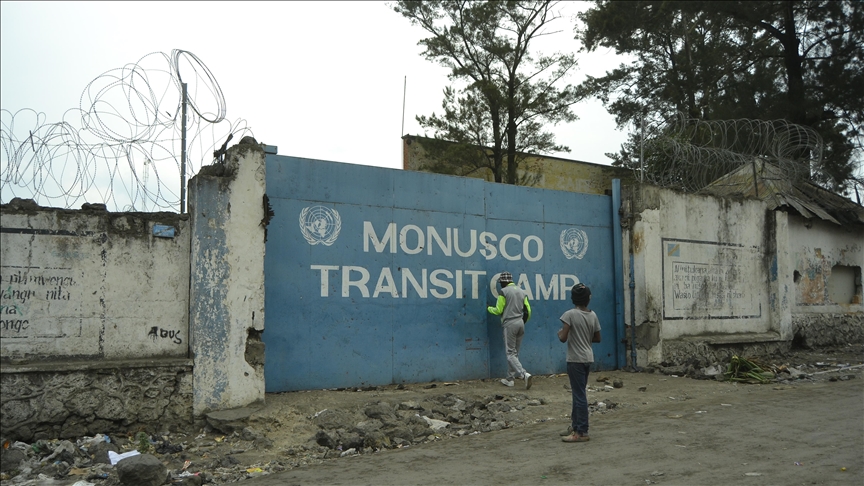- Details
- East Africa
- 183
A view of damaged United Nations Stabilization Mission in the Democratic Republic of Congo (MONUSCO) building in Goma, Democratic Republic of Congo
ISTANBUL
South Africa, one of top 10 troop contributors to MONUSCO, currently has over 700 soldiers deployed to support UN mission, expected to completely pull out by 2026 end, says presidency
South Africa will withdraw its troops from the UN peacekeeping mission in the Democratic Republic of Congo (MONUSCO) after 27 years, with the pullout to be completed by the end of 2026, the presidency announced on Sunday.
In talks with UN Secretary-General Antonio Guterres over the phone on Jan. 12, President Cyril Ramaphosa said South Africa’s withdrawal is driven by “the need to consolidate and realign the resources” of its national defense force (SANDF), the presidency said in a statement.
South Africa is among MONUSCO’s top 10 troop contributors, currently deploying more than 700 soldiers to support the mission’s peacekeeping mandate.
The statement said South Africa will work with the UN to finalize the withdrawal plan, including timelines and other key details.
It said Pretoria will maintain close ties with Congo and continue supporting multilateral efforts by the Southern African Development Community (SADC), the African Union (AU), and the UN to bring lasting peace to the country.
The M23 rebel group, which has been at the center of the conflict in eastern Congo, controls significant territory, including the provincial capitals of Goma and Bukavu, which it seized earlier in 2025.
The Congolese government, the UN, and others accuse neighboring Rwanda of supporting the M23, an allegation Kigali denies.
Last week in Qatar, Congo and the AFC/M23 rebel coalition signed an agreement on monitoring their ceasefire terms, supported by the US, the AU, and other international partners, as part of the Doha-mediated peace process aimed at ending the conflict in the country’s east. By Mevlut Ozkan , Anadolu Agency






